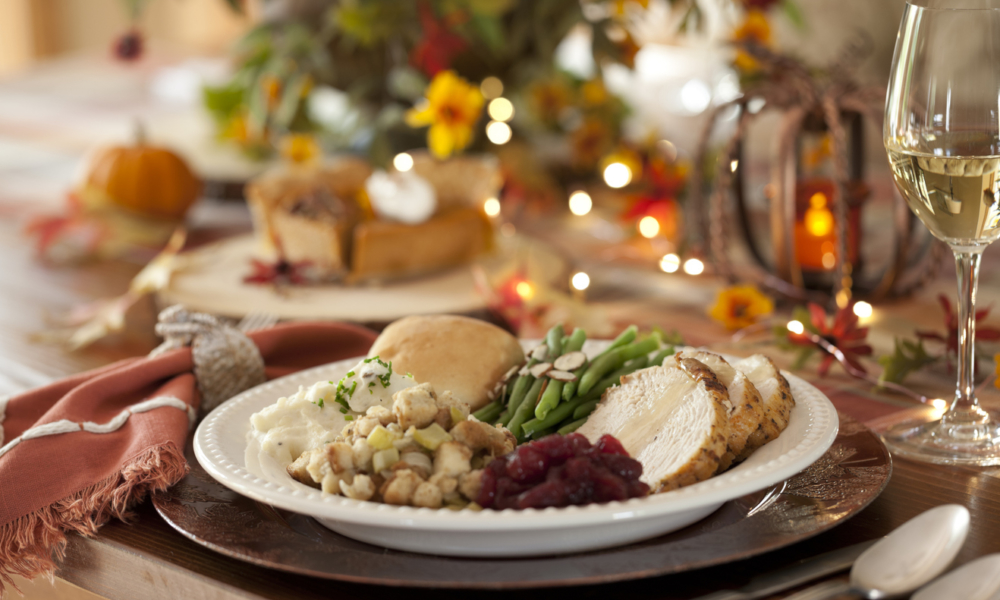
IBS Threatening to Ruin Your Thanksgiving?
Around 20% of people suffer from Irritable Bowel Syndrome or IBS. The leading causes are stress and diet-related, so that the holidays can be a struggle for those with the condition. Living with IBS is hard enough, but it can feel impossible during the holidays. With all the tempting holiday foods, it's easy to become fixated on what you can have and miss out on celebrating together.
There is good news for those with IBS who are navigating their Thanksgiving diet- there are many food choices in a typical Thanksgiving meal that won't aggravate your IBS but might be suitable. This includes turkey.
What is IBS
Diarrhea, constipation, stomach pain, and bloating? You might have irritable bowel syndrome (IBS), which impacts the gastrointestinal tract. Even though there's no cure for IBS, symptoms can be managed long-term with some effort.
Some people with IBS experience mild symptoms that can be controlled by diet, lifestyle, and stress management. However, others with more severe symptoms may require medication or counseling.
Symptoms of IBS
Listed below are the most common symptoms of IBS that usually present themselves over an extended period:
- A discomfort in the abdomen is associated with bowel movement. This may include cramping, bloating, or pain.
- A change in the way your bowel movements look.
- Changes in your bowel movements (BM)
Additional commonly-related symptoms include the feeling of incomplete evacuation and an increase in gas or mucus within the stool.
Triggers for IBS
Triggers that contribute to IBS symptoms are:
- Food. The relationship between food allergies or intolerances and IBS is not fully clear. True food allergies are rare, but many people's IBS symptoms worsen when they eat or drink wheat, dairy products, citrus fruits, beans, cabbage, milk, or carbonated drinks.
- Stress. Although stress does not cause IBS, it can make symptoms more frequent and worse.
Thanksgiving + IBS = Stress/Trigger Foods
No one wants to worry about their food on Thanksgiving, but it can be challenging for those with IBS between travel and family. Luckily, there are options to make the day go smoother.
We advise you to stick to moderation, as tolerance levels vary from person to person. However, if a turkey is your thing, have some white meat without the gravy. It would help if you also explored other types of lean protein like eggs, salmon, or nuts.
Low FODMAP foods are ideal for filling your plate at Thanksgiving and throughout the year. The acronym FODMAP stands for Fermentables, Oligosaccharides, Disaccharides, Monosaccharides, And Polyols. Some Low FODMAP-approved foods include Bell peppers, Broccoli, Carrots, and Squash are a few examples.
With so many low FODMAP foods, you can enjoy a delicious and comfortable Thanksgiving feast without fearing IBS symptoms.
More Tips Dealing With Your IBS This Thanksgiving
Try and stay relaxed: There is a close relationship between the brain and the digestive system. Stress can cause changes in intestinal motility, resulting in constipation, diarrhea, or both. Stress can also lead to intestinal permeability (which causes leakyleaky gutgut), increased gut sensitivity (leading to GI pain), and disruption of the microbiome ( predisposing to IBS).
Don't pile on the calories: People with IBS (and everyone else, to be honest) shouldn't try and "make room" for a massive meal by not eating throughout the day. This isn't good practice for anyone, but individuals with IBS could have more difficulty digesting if they overeat during one sitting. Make sure to start your day with breakfast and then eat smaller meals more often as the day continues. Snacks and appetizers are okay, too- like whole grain crackers or fresh veggies!
Watch gassy and fatty foods: Bloating and gas after meals can be avoided by steering clear of carbonated drinks during dinner. You know better than anyone else what gives you gas, but a good rule of thumb is to go for smaller portions of veggies like Brussels sprouts or cabbage and choose a crunchy leaf salad instead. High-fat foods can trigger IBS symptoms, so opt for turkey breast without gravy and select lower-fat side dishes such as roasted green beans, whole grain rolls, or maple-roasted sweet potatoes over higher-fat alternatives like sweet potato casserole.
Consider a digestive: Kick back in your coziest sweats after dinner and warm up with a cup of ginger tea. Make yours by grating fresh ginger into hot water, then squeezing in some lemon and honey. You can still enjoy Thanksgiving even if you have IBS, as long as you're mindful and take it easy.
Digestive Health Partners Can Help With IBS
We encourage you to contact us and set up an appointment to help diagnose and help you find the best treatment plan for managing your gut health. Don’t let your IBS ruin your thanksgiving.